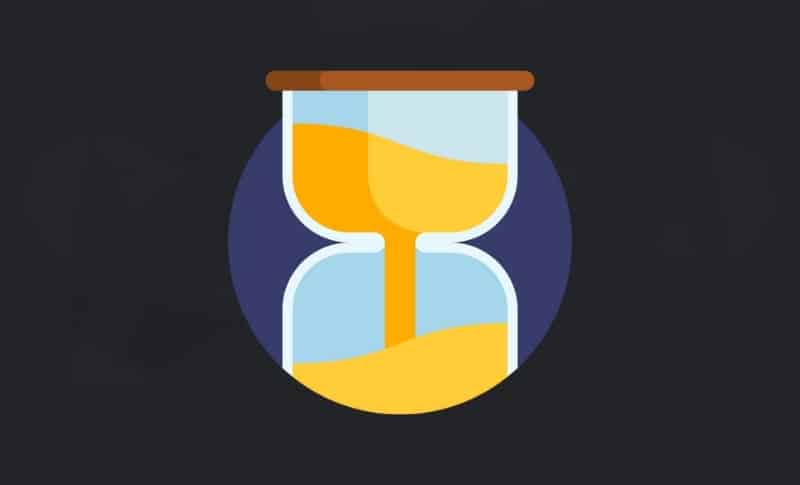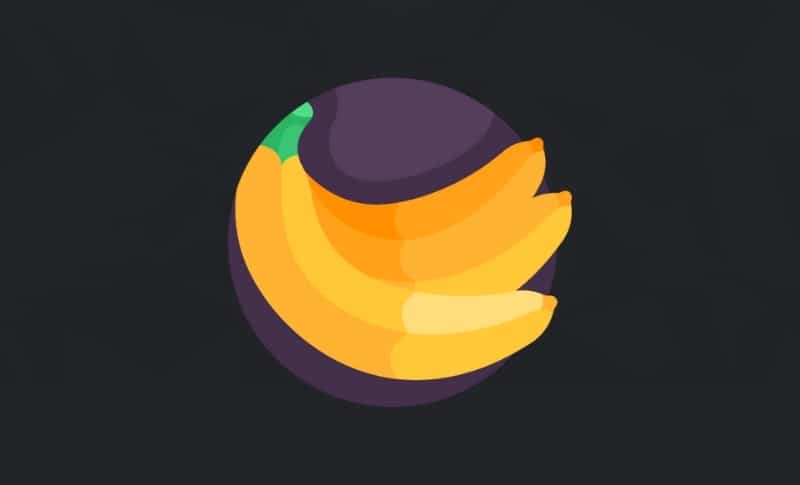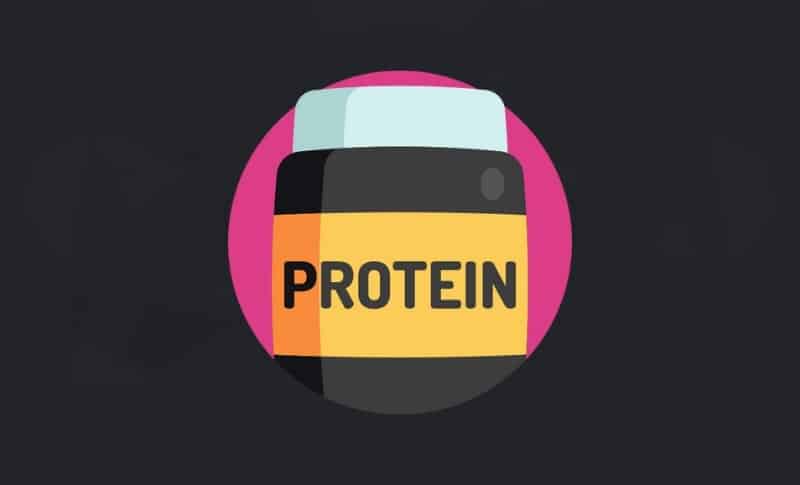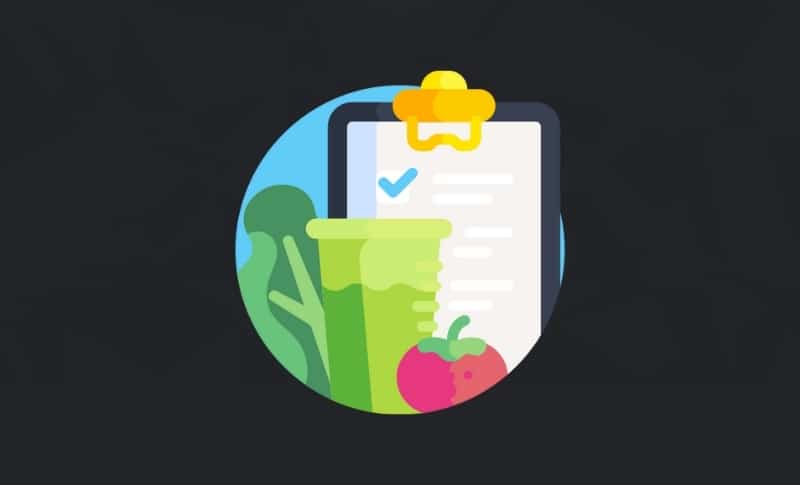Nutrition
Workout Nutrition: A Guide On What to Eat Before & After A Workout
What to eat and drink to improve your athletic performance and lose weight.
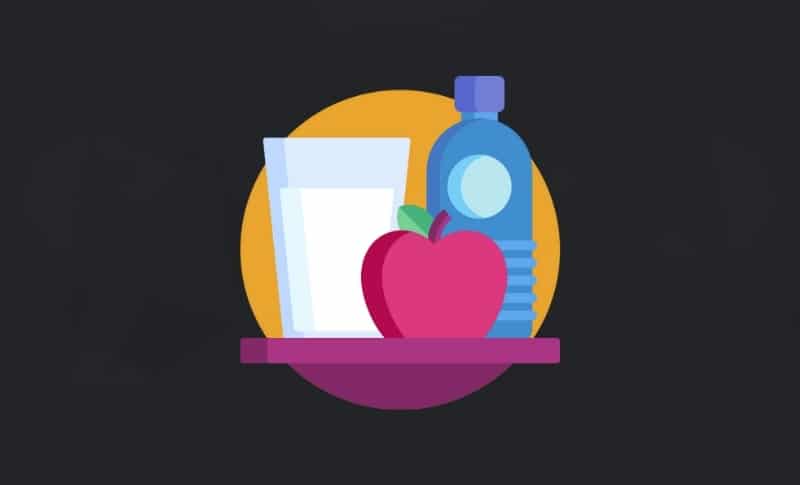
If you want to maximize the results of your workouts then you need to eat correctly before and after you go to the gym. This is a rule that applies to people who want to lose weight and people who want to put on muscle alike.
The food that you eat before your workout is the fuel that will help you to complete it without collapsing. And the food you eat after your workout will help your body to recover from it. Without the right fuel, your body won’t be able to do either.
In this article, we are going to talk you through how to correctly prepare for a workout, and how to feed your body afterward to maximize your results.
Table of contents
Should You Eat Before Or After Working Out?
You should always eat after exercising.
After exercising you want to replenish your body’s glycogen stores as soon as you can. While the food you ate before exercising will help with this a little bit.
The nutrients in your bloodstream are incredibly important for recovery. However, if your energy reserves are depleted then your body has a limited amount of nutrients to draw on. By eating after you have worked out, you can keep these stores topped up.
Whether you should eat before a workout or not will depend on the results you are looking for. If you are looking to lose weight then some studies suggest that fasting (not eating) before a workout and eating afterward can be an effective weight-loss technique.
It has also been suggested that fasting before a workout does not affect your energy levels while exercising.
Some people do experience higher levels of exhaustion than others – particularly underweight individuals. If you are underweight then you should always eat before a workout.
If you are looking to improve your athletic performance or to increase your muscle mass then you should eat before you workout. One study showed that people performed 54% better on average if they had eaten before exercising.
What To Eat Before A Workout
In this section, we are going to cover what you should be eating before you workout when you should be eating it, and the different food groups you should be focusing on.
Eating before a workout is essential for three groups of people:
- People looking to improve their athletic performance
- People looking to put on muscle mass
- Anyone who is underweight
The only people who may want to skip food before a workout are people who are trying to lose weight.
Eating before a workout can actually minimize muscle damage during a workout. This in turn reduces muscle soreness and recovery times between workouts. This can be useful for people who move a lot in between workouts.
So, what should you be eating before you work out?
Well, there are three things you should be focusing on consuming:
- Foods with quick release energy
- Foods that are high in protein
- Complex Carbohydrates
Quick-release energy comes from simple carbohydrates and sugars that the body can break down quickly to make insulin. Complex Carbohydrates help to restore the glucose used to make insulin. And protein is used to help our muscles repair more quickly.
Together these nutrients help your body to perform to its full potential.
How Long Before a Workout Should You Eat
The ideal time to eat before a workout is between 3-2 hours beforehand.
If you can, you should eat a whole meal that includes some complex carbohydrates and some protein. You can then eat an item with quick-release energy (like fructose) 30-45 minutes before your workout.
You shouldn’t eat less than 30 minutes before a workout. If you are feeling hungry, you could drink a coffee. This will give you an energy boost and help with the hunger pains.
If you only have time to eat 45-30 before you work out, then you should have a small meal with protein and simple carbohydrates. It should be a light meal that is easy to digest. You should pair this means with an item with lots of quick-release energy in it. This will give your body enough energy to start exercising while it digests the rest of the meal.
Should You Eat Fat Before a Workout
Fats should never be completely cut out of our diets as they are an essential source of energy.
However, it is best to avoid eating fat before your workout.
Fat takes a long time to be digested by our bodies. Therefore, while it is being digested it uses up more energy than it gives (despite being energy dense). This will leave you feeling tired and sluggish while you workout. You may also get an upset stomach.
What are some good alternatives to eating fat before a workout?
If you are looking for a solid source of energy while working out, then the best thing you can do is eat a meal with complex carbohydrates a few hours before you exercise. They will give energy quicker than fat. They also replenish your glucose stores, so you will feel more energetic before and after your workout.
Quick Energy Release Foods
Quick energy release foods are easy for our bodies to break down. They usually contain a large amount of at least one of the FODMAP sugars.
When our bodies break down these foods they are converted into insulin which gives us an energy rush. But insulin production uses Glucose which is our main form of energy. So, although these foods can make us feel energized in the short term, if they are not paired with complex carbohydrates then they will leave us more tired than when we started.
You should eat these 30-45 minutes before your workout.
Below we have list 4 great sources of quick-release energy:
Bananas (and other whole fruit)
Whole fruit is full of fructose which is a really good source of quick-release energy.
We have recommended Bananas in particular because they are also considered Complex Carbohydrates (we will cover why it is so important to pair these with quick-release foods in the section) and are one of the best things you can eat before exercise.
This is why you often see athletes snacking on bananas in their rest breaks or just before an event.
Smoothies
Smoothies are another type of food that tends to be full of fructose and complex carbohydrates – depending on who you make them.
In a pre-workout smoothie, you should avoid fatty foods and lots of dairy.
You should use nut or oat milk instead of real milk.
Foods like spinach and matcha tea are full of antioxidants that will help to speed up your recovery after a workout.
Apple With Peanut Butter
Apples are another high fructose fruit. When they are eaten with peanut butter they are a great way to boost your calorie intake without overwhelming your stomach. This is a great pre-workout snack for people recovering from EDs.
Although this snack has some fats in it thanks to the peanut butter, they are healthier snacks that your body can break down faster. Peanuts are also considered a complex carbohydrate as well as containing these healthy fats.
Dried Fruit/Trail Mix
Trail mix was originally designed to help hikers keep their energy levels up on long walks. Most trail mixes are made up of a mixture of oats, nuts, dried fruits, and sweets.
Together these ingredients provide quick-release energy, slow-release energy, and complex carbohydrates. This is the perfect pre-workout snack if you are preparing to do an exercise like long-distance running where all three types will really benefit your performance.
Complex Carbohydrates
Complex Carbohydrates are an essential part of our diet, particularly when we are doing the right amount of exercise.
Exercising leaves us with depleted glycogen stores, as does eating quick energy-releasing foods and sugar. Our bodies break down complex carbohydrates into glucose which can be used as energy or to renew our glycogen stores.
Complex carbohydrates take longer for our body to break down than sugars, so it is best to consume them up to two hours before you start working out for the maximum benefit.
Oats
Oats are a great form of complex carbohydrates as they can help to reduce muscle damage during a workout.
Oats are fairly light and can be cooked in many different ways. It is possible to use them to make oatmeal (top with fruit for an extra rush of energy). You can blend oats into smoothies for a thicker texture and you can be baked into pre-workout cookies.
Baked Sweet Potatoes
Baked Sweet Potatoes can be swapped out for fries or mashed potatoes. You can even use them in the place of baked potatoes to make sweet potato waffles.
They are great for boosting your energy and healthily satisfying your sweet tooth.
Broccoli
Not only does one serving contain 6 grams of carbs, but it also contains 2 grams of fiber and 100% of your daily recommended dose (RDI) of vitamin C and K.
Wholegrain Bread
Opting for wholegrain bread over white bread is a good option if you are looking to lose weight or for energy.
White bread is full of sugar and therefore can deplete your glycogen stores if you eat too much of it. Wholegrain bread on the other hand is a complex carbohydrate that will give you more sustainable energy over a longer period of time.
Brown Rice
A serving of brown rice contains 44 grams of carbohydrates. It is slow to break down in our bodies and it is high in fiber. Brown rice is more filling than white rice and is considered by many to be better for you than quinoa and farro.
Lentils and Beans
Legumes like beans and lentils are some of the most complex types of carbohydrates that sometimes bodies struggle to digest. This is why they can cause some of us to get wind after eating them.
They are also very high in protein and very filling. They are, however, not very calorie-dense. If you are looking to put on weight, you shouldn’t have so much in your diet.
Protein
Protein is the essential muscle-building macronutrient. While protein is most useful after a workout, recent studies have suggested that consuming it before a workout can reduce muscle damage during exercise.
One study even showed that eating protein before a workout could produce a positive anabolic response in our bodies.
The bodies use protein for muscle recovery, for building strength, for building muscle mass, and for improving our athletic performance.
Most people believe that eating meat is the only way to get protein in our diet. But this is not the case. There are a large number of foods that contain protein, some legumes even contain more protein than meat per serving.
Grilled Chicken Or Turkey
When you are eating meat for protein it is best to avoid red meat. Red meats are very high in sodium and fat. Both of which are bad for your heart and your athletic performance.
White meat like chicken and turkey is a lot lower in fat. They are also lighter and easier for your body to digest. Therefore they are better to eat before a workout than red meat.
Eggs
Eggs are a great source of protein that is easy to cook and can be digested quickly. The ideal way to eat an egg is for it to be boiled. If you are looking at cutting out fat completely before a workout, use the whites only.
Low Fat Yogurt
We recommend low-fat yogurt because we are trying to avoid fat-heavy pre-workout snacks. Low-fat yogurt is high in protein and lactose (a type of quick release sugar) – so is great for short and long-term energy production.
Tofu
Tofu is a great source of protein for vegans and vegetarians. Or anyone else who is looking for quite a few grams of protein per serving.
There are many different ways to cook tofu. You can fry it or bake it like meat and you can even scramble it like eggs.
Tuna
Oily fish is so good for us – it is believed to fight anxiety, make us sleep better, and it is full of Omega-3. Oily fish, like tuna, is also full of protein.
Protein Shake
No one will be shocked to hear that protein shakes are full of protein. But there is some debate about whether they should be drunk before or after a workout.
If you want to drink a protein shake before a workout then you want to avoid using milk in it. You should try to use a nut milk alternative or just use water. The fat in milk will make you feel exhausted during your workout.
What To Eat After a Workout
As we have mentioned before in this article, eating after a workout is essential, even if you are trying to lose weight.
The Importance of Eating Post-Workout
During our workouts, we burn calories in the form of insulin and from glycolic stores. While some of the food that we eat before our workouts can help to replenish our depleted glycolic stores. We need to eat more to fully restore them.
There are three main food groups that you should be trying to eat after a workout:
- Carbohydrates
- Proteins
- Fats
Carbohydrates are the main type of food responsible for helping our body to restore its depleted glycolic stores. Our bodies break carbohydrates into glucose which is stored in our bodies as glycogen. This is the first line of energy that our bodies draw on when we work out.
Protein has also been proven to aid muscle recovery after a workout. This is why it is such an essential part of any bodybuilder’s diet.
When we say fats, we don’t just mean any kind of fat. We mean healthy fats. These types of fat do not raise your cholesterol or clog your arteries. Instead, your body turns then to injury and uses the nutrients they hold to repair your muscles after a workout.
How long after working out should you eat
If you did not eat before working out then you should try and eat as soon as you can after finishing your workout.
Studies into whether eating protein straight after a workout improves recovery time have given mixed results. When you eat it seems to have no effect, as long as you eat it within 4 hours of finishing your exercise.
Studies have also shown that you may be best off waiting until 2-4 hours after you have finished exercising before you eat. One study showed that the body could wait 2 hours before needing to restore its energy banks.
So, to conclude, as long as you eat within 4 hours of finishing your exercise you will be fine. If you feel hungry after working out then that is probably your body telling you it needs more energy.
Should You Eat Fat Post-Workout
Yes, you should eat fat after a workout. However, you should make sure that you are eating the right kind of fats.
Healthy fats lower your level of LDL cholesterol, replacing it with HDL cholesterol. They decrease your risk of developing heart disease. Healthy fats also contain a whole range of nutrients that it is difficult for your body to get elsewhere.
Healthy fats can be found in many different foods, including olive oil, oily fish, avocado, and pine nuts.
Food To Eat After Working Out
There are three main food groups that you should be trying to eat after a workout:
- Carbohydrates
- Proteins
- Fats
Carbs
Carbs are essential for recovering after a workout.
As we have mentioned above, complex carbohydrates are broken down into glucose by our body. The glucose is then stored by our body and burnt when it needs the energy.
We need to replace the glucose that we have burnt away after a workout. The best way to do this is to eat a carbohydrate-based meal. It is best to eat this within 4 hours of when you finished exercising.
Carbohydrates to avoid:
- Alcohol
- Sugary drinks
- White bread
- Pastries
- Foods made from white flour
- Fried carbs
Quinoa & Other Grains
Grains are an easy way to include carbohydrates in your diet. Quinoa, Farro, or Brown rice make great bases for any meal. They are easy to cook and you can customize them to suit your own tastes.
Brown rice, Quinoa, Corn, Farro, Millet, Buckwheat, Wheat, Bulgarwheet, Oatmeal, and Barley are all grains that you should try to incorporate into your diet.
Fruit
Whole fruits are high in fiber and a good source of carbohydrates. They are also rich in vitamins and minerals. One of the great things about fruit is that there are so many different types, so everyone will be able to find something they like.
Bananas and Mangos are the best fruit source of carbohydrates. However, dried fruits like raisins and dates also have a high percentage of carbohydrates. The one side effect of dried fruits is that they are high in FODMAP sugars (these types of sugars are very hard to digest), which can upset people with sensitive digestive systems.
Potatoes
Both traditional potatoes and sweet potatoes are complex carbohydrates. You have to pick the type of potatoes you are going to eat carefully, however.
Fries and hash browns are potatoes but they are also high in sodium and saturated fats. A baked potato on the other hand has all the carbs without any of the other additives.
Whole grain pasta and bread
Not all flours are made equally. Most of the breads, pasta, and cakes in the West are made with refined white flour. Refined flour is usually bulked out with sugar to give it a better taste.
Whole wheat flour is very rare, as it is so expensive to make, however, many companies will use other types of whole grain flour to make pasta and bread. These are the options you should be gravitating towards.
Protein
Exercise is essential for muscle growth. When we exercise we make tiny tears in our muscles. When they heal they are slightly larger.
Protein is essential for muscle growth and recovery. As we discussed earlier, consuming protein before working out can help prevent muscle soreness. But eating protein after a workout is the best way to see them grow.
Protein also helps to prevent the loss of lean mass, which is essential for making our muscles viable and look toned.
If you are looking to build muscle then you should be eating 1.5g of protein for each pound of your body weight. The number will be slightly lower if you are looking to lose weight at the same time.
Cottage cheese
If you know a lot about nutrition then you won’t be surprised to see cottage cheese on this list. On average 100g of cottage cheese contains 11g of protein. Cottage cheese has been shown to be a key part of a healthy diet – especially for those looking to lose weight.
Eggs
Eggs contain 13g of protein per 100g. While many people are tempted to just eat the whites and skip the yokes. We have been told for a long time that this is healthier. However, egg yolks also contain protein and healthy fatty acids that can lower our cholesterol levels.
Chicken
As we mentioned before, chicken is one of the best meat options when it comes to protein. It is much lower in saturated fat than red meat and it contains 27g of protein per 100g.
Yogurt
Plain yogurt has around 10g of protein in every 100g. Although, we are now starting to see yogurt companies making ‘protein yogurts’ that contain closer to 25g of protein per 100g.
Yogurt could be enjoyed on its own, or mixed with fruit, nut butter, and seeds for a well-rounded post-workout snack.
Protein Shake
We talked about taking protein shakes before a workout, but the best time to take them is within 2 hours of finishing your workout.
If you are taking your protein shake after your workout then you don’t need to avoid fats like milk or yogurt. Although using a nut or oat milk is a great way to get in some healthy fats and complex carbohydrates.
Salmon
Salmon is one of the healthiest sources of protein for anyone looking to build muscle or to lose weight. It is full of healthy acids (see the next section) and has 20g of protein for every 100g. It also contains 133% of your RDI of vitamin B12 per 100g.
Fats
A lot of people think that all fats are bad for you when this is not actually the case. There are in fact, four different categories that fats fall into:
- Saturated
- Monounsaturated
- Polyunsaturated
- Trans fats
Monounsaturated fatty acids and polyunsaturated fatty acids are considered good fats that the body needs to function. They have been shown to decrease LDL cholesterol levels in our bodies. And our body uses them to create HDL cholesterol which our body needs.
Trans fats and Saturated fats on the other hand have been proved to raise LDL cholesterol levels and increase the likelihood of developing heart disease.
Nuts & Seeds
Not only are nuts and seeds a good source of healthy fats, but they are also an efficient source of protein, fibers, vitamins, and minerals.
The fats inside both nuts and seeds are unsaturated. These unsaturated fats have been shown to have a positive impact on heart health and cholesterol.
Avocado
Avocados are mostly made up of oleic acid, a monounsaturated fatty acid.
As well as contain oleic acid, a healthy fat that helps to lower cholesterol, they also contain large amounts of potassium. Potassium is believed to lower blood pressure.
Avocados are also high in vitamin C, Vitamin B6, and Vitamin E.
Nut Butters
If you are looking for a sandwich filling or dessert topping which will help you get the body you want you should ditch the jelly and/or the processed meat and try nut butter.
Nut butter can be made by blending any kind of nut – you can use peanuts, cashews, almonds. They are super easy to make and are a great source of healthy fats and fatty acids.
Olive oil
When you think of healthy fats, olive oil is probably the first thing you think of. It is high in vitamin E (great for the skin) and vitamin K (great for brain function).
It also contains fatty acids that help to slow the build-up of cholesterol within our bodies. We’re not saying that you should put olive oil on everything, but you shouldn’t shy away from it. Not all oil is bad.
Dark Chocolate
Dark Chocolate is a great alternative to other types of chocolate. White chocolate contains a large amount of sugar and unhealthy fats. While milk chocolate is better than white chocolate, it still contains a lot of fat and sugar.
Dark chocolate on the other hand contains more cocoa. Cocoa is full of healthy fats and a slow release of caffeine.
Summary
Whether you are looking to lose weight, build muscle, or break some of your personal bests – correctly fueling your body is essential.
Before you work out, it is important to give your body a mix of quick and slow-release energy. You can do this by eating fructose heavy fruits, complex carbohydrates, and protein-heavy foods. It is important to keep this meal light and grease-free.
After a workout, you want to give your body as much protein as you can, as it helps to speed up recovery times. You also want to make sure that you have a balance of complex carbohydrates and healthy fats on your plate too.
With the help of this eating guide, you will see your best results ever at the gym.

